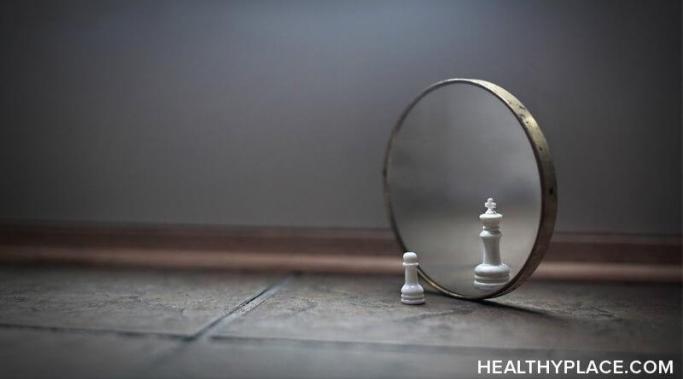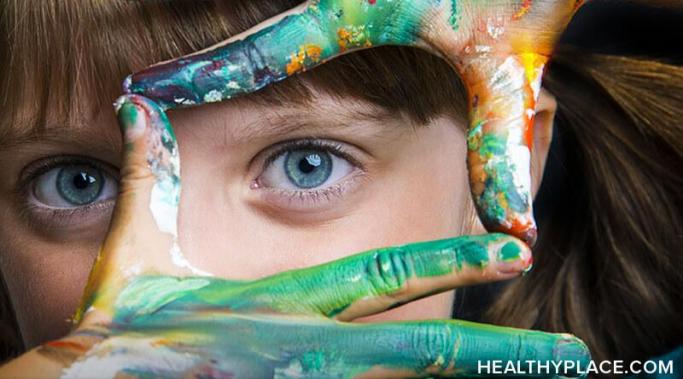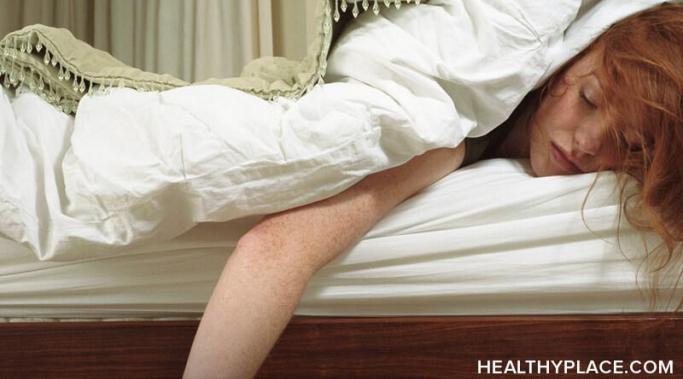Blogs
How's your body image? Are you attractive? Do you like the way you look? Do other people think you're beautiful? It's hard to talk about body image without sinking deep into our most vulnerable places. As standards of beauty become progressively less realistic (hello Instagram filters, goodbye pores), being able to have an honest conversation with ourselves about our looks becomes increasingly difficult. Yet we each live within our own, unique bodies every day–being able to look at them in a realistic (and non-damaging) way is a valuable tool towards understanding who we are, developing a healthy body image, and ultimately towards building self-esteem.
My schizoaffective disorder makes it hard for me to clean my home. I do little things here and there, though. I regularly take out the garbage and the recycling and I do a bit of dusting. But it’s not enough. My apartment is still very messy. It’s messy to the point where my husband Tom and I don’t have people over. It’s really embarrassing to say to friends, “We can’t have you over because our apartment is too messy.” We just don’t invite friends over.
Clutter and disorganization in your personal space and surrounding area can be worse than annoying: they can make you anxious. While clutter doesn't directly cause anxiety to begin, a messy area can cause your sense of anxiety to flare whether you live with an anxiety disorder or experience anxiety but not a disorder. Here's a look at how clutter can affect anxiety and anxiety-friendly ways to fix it.
Is attention-deficit/hyperactivity disorder (ADHD) a gift or a disability? There is much debate about this topic. People feel very strongly about this ADHD issue, perhaps because the question is tied to our identity. In my opinion, there is no easy answer, and it very much depends on the circumstances.
If you are like me, then you might have asked yourself the question: "What are some eating disorder recovery podcasts worth tuning into?" I am a major advocate of professional counseling—in fact, I see my therapist once a week—but I also endorse other supportive resources outside a counselor's office too. The hour I spend in therapy each week is sacred and beneficial to me as a person in recovery for both anorexia and trauma-related issues, but when I'm not directly across from my therapist, the intervention I reach for most often is my arsenal of podcasts. So in this article, I want to break down the eating disorder recovery podcasts that I consider worth tuning into as therapeutic adjuncts—to reinforce not replace clinical treatment—and why I find them useful in my own healing process.
I've struggled a lot with getting a good night's sleep. Almost every night I laid awake with my racing, anxious thoughts. I was exhausted physically, but couldn't quiet my mind. Once I finally fell asleep it wasn't for long. I would get up several times throughout the night. Some days I couldn't keep my eyes open at work. I would find a way to take a nap if at all possible. My situation felt desperate so I have been on a quest the past several months to discover ways to get a good night's sleep.
To all those reading this blog: if there’s one thing I’d like you to take away from it, it’s how important developing empathy really is. This is something that is applicable far beyond just anxiety – I would argue that it’s essential if you want to be anything resembling a decent human being in general. But because we are focusing on mental health, I will devote this time specifically to why being an empathetic person is so important to those who are struggling with mental illness.
It's really okay to be lazy sometimes. Many of us with mental illness have been called lazy at one time or another due to the symptoms of our mental illness. When people don't understand our symptoms, they often try to shame us into simply not being mentally ill anymore by saying we're just being lazy or aren't trying hard enough. "Lazy" then transforms from a simple descriptive word to a powerful tool of shame. "Lazy" becomes the worst thing we could possibly be, and many of us avoid it at any cost. But the truth is, those of us with mental illness can be just as lazy as anybody else.
Letting go of friendships can feel even more difficult than letting go of a significant other. You may find yourself ending a friendship for a variety of reasons, but the process is similar to ending a romantic relationship.
Understanding your anxiety and yourself can be really challenging. Last week I wrote about techniques to avoid labeling yourself as anxious, and as a strange continuation, today I want to share the value I see in using labels to overcome anxiety by understanding your anxiety's source. Here's a question you may not have considered: how do you know whether a thought is a product of you, or of your anxiety? Now, the easy answer is that it's both -- our minds defy simple categorization, and our thoughts are the same. But I think distinguishing between behaviors and thoughts that result from anxiety and from our preferences is a crucial strategy for understanding your anxiety so you can move past it. Let's walk through an example to illustrate why.









